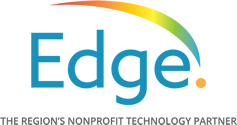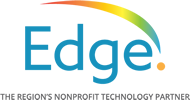
- This event has passed.
Annual Teaching with Technology Showcase: Excellence in Action
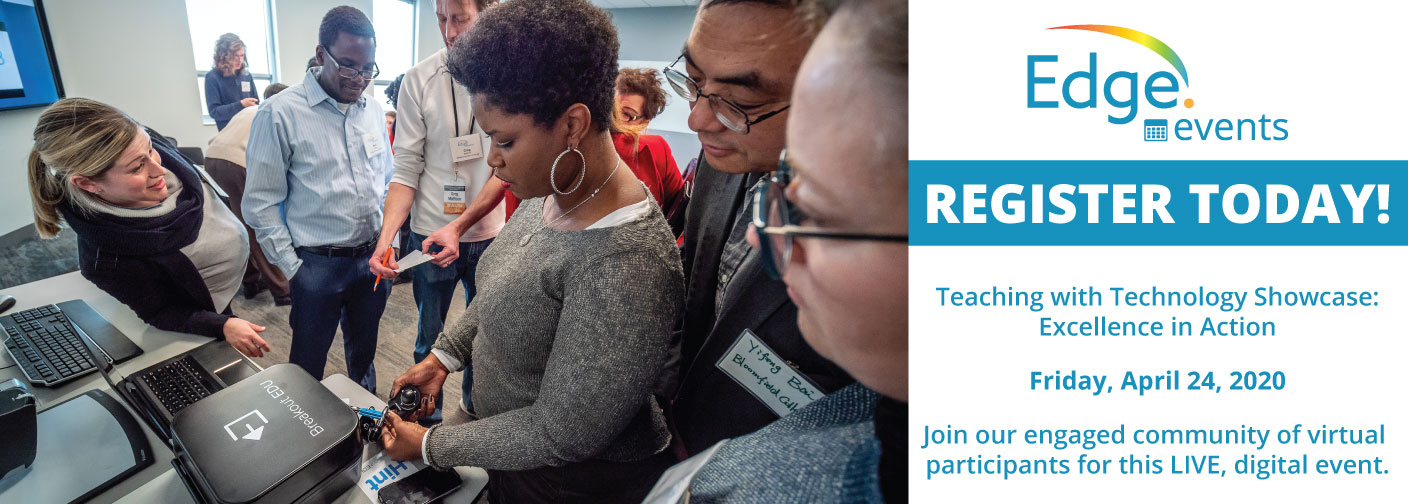
Virtual Teaching with Technology Showcase: Excellence in Action to highlight AR, VR, OER, classroom multimedia, and faculty adoption techniques
One of the major impacts of COVID-19 is the disruption of the current in-person delivery and learning in a formal classroom environment. The Teaching with Technology Showcase will provide opportunities for sharing best practices in Educational Technology among professionals from K-12, libraries, community colleges, and baccalaureate, masters, and doctoral degree granting institutions. Join your peers and presenters from throughout the region.
We are excited to pilot a new tool, Run the World, to move the Annual Teaching with Tech Showcase: Excellence in Action online. We are elated to use this new technology which will take the showcase beyond just a “second-screen” experience. The event will be just like an in-person conference with interesting speakers, opportunity to network with like-minded people and a chance to see great content and gain new knowledge.
The Teaching with Technology Showcase offers you an opportunity to preview an exciting new intuitive tool which has the functionality of a social network. You will be able to:
- Fully engage with presenters and other attendees
- Experience participant-to-participant interaction
Register TODAY!
Cost: $50
RegisterKeynote & General Sessions
Keynote and General Session Presentation by co authors of Metaliterate Learning for the Post-Truth World, Empire State College Professor of Arts and Media Thomas P. Mackey, Ph.D. and University of Albany Distinguished Librarian Trudi Jacobson, MLS.
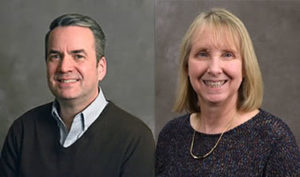
Agenda & Breakout Sessions:
9:30 a.m. Welcoming Remarks
Nancy Zimmerman, Executive Director for EdgeEvents and Print Communications
9:45 a.m. Breakout: Game of Assessment: Outcome Data and Student Success
Stephen Fowler, Instructional Designer, Brookdale Community College
Christine Vasquez, Associate Professor, Brookdale Community College
Description
Collecting assessment data shouldn’t be harder than securing the Iron Throne. Effective outcomes assessment emphasizes the analysis of relevant data and the implementation of interventions to increase student success, not the data collection process. Unfortunately, the assessment cycle can often be convoluted and confusing, and collecting outcome data can be time intensive. Grading assignments with rubrics in an LMS allows for seamless alignment with learning outcomes and easy collection of outcome assessment data. Data can be viewed in chart form and easily exported and broken down for course, program, and institutional level outcomes. This presentation will show how the Learning Mastery Gradebook tool in Canvas can simplify assessment data collection. Channel your inner Targaryen, and slay assessment data with a sword of student success.
9:45 a.m. Breakout: Techniques to Promote Faculty Acceptance in Adopting Technology
Nicole Luongo, Ed.D., Associate Professor of Education and Director of Distance Learning at Saint Peter’s University
Robert Adelson, Learning Technology Specialist, Saint Peter’s University
Description
This session will present various technical assistance techniques and methods that Informational Technology (IT) staff members can implement to promote faculty acceptance of technology in higher education. The presentation will showcase successful hands-on technical support methods that can be used with faculty to enhance classroom and online technology, with a focus on the long-term retention of skills and use of various technical tools. This presenters will introduce methods of designing and providing effective group and one-on-one IT support for higher education faculty members that can assist in the development of high-quality teaching and learning experiences. The presenters will explain engaging ways that IT staff can work with faculty to provide assistance for classroom technologies. The presentation will give examples of ways that IT staff can be trained to demonstrate and guide faculty to use technology without “doing it for them”.
9:45 a.m. Breakout: Creating an Immersive Learning Experience using Virtual Reality
Patricia Kahn, Ph.D., CIO and Assistant Vice President for Information Technology Services at the College of Staten Island
Ryan Gladysiewicz, Associate Director for the Office of Instructional Design, The College of New Jersey
Description
Creating an immersive learning experience using virtual reality (VR) technology can provide an environment where students can interact with 3D model worlds offering students an opportunity to engage, improve their retention of material taught in classrooms, and be exposed to “real life” situations. The College of Staten Island and the College of New Jersey will share their insights about the planning involved to create a virtual reality lab as well as the technology chosen in order to support faculty and students while staying within budgetary constraints. Faculty will show examples of how virtual reality worlds were created using 3D camera technology and how these worlds were integrated into a VR environment in order to enhance the learning experiences for their students. Finally, during this demonstration we will talk about the do’s and don’ts for creating a comfortable new user virtual reality experience as well as provide opportunities for attendees to experience VR technology.
Learning Objectives
- Comfort using VR technology
- Challenges associated with the development of a VR lab
- Pedagogy using VR technology
9:45 a.m. Breakout: Taking Multimedia to the Extreme
Sital Patel, Library Technical Support Specialist, Library Administration
Steven Shapiro, Interim Head of Multimedia Resources Department, Montclair State University
Description
The session will outline how Montclair State University’s Media Department has expanded the scope of its services and utilized technology to enhance group study spaces to encourage collaborative efforts on group and media projects. This involved working closely with our Library Technical Support Specialist and Information Technology Division in planning and designing the collaborative spaces. In addition, we will discuss our use of exhibits, workshops and programming to highlight our collections and services as well as the use of Zoom in facilitating community and campus engagement through programming. New services such as lending a digital piano/keyboard and presentation printing will also be mentioned.
Learning Objectives
- New ways to utilize space creatively
- Develop strategies and practical methods for highlighting media collections and services
- Implementation methods for relevant new services for patrons
10:30 a.m. Q & As
- Q&A – Game of Assessment: Outcome Data and Student Success
- Q&A – Techniques to Promote Faculty Acceptance in Adopting Technology
- Q&A – Creating an Immersive Learning Experience using Virtual Reality
- Q&A – Taking Multimedia to the Extreme
10:45 a.m. Breakout: Ignite Student Interest with Video Game Creation and Integration
Denise Post, K-6 STEM Teacher at Salt Brook Elementary School
Julie Spoerl, Educational Technology Specialist, New Providence Public Schools
Description
Bloxels EDU is an engaging educational video game creation platform that works on iPads, Android devices, Kindles and Chromebooks. It combines a game board and set of pixel blocks with a digital 13-bit layout. Students can instantly turn their physical creations into a digital game that they can edit and customize with information/story blocks, characters, and plot. In this session, participants will be provided with an overview of how to create a game from start to finish with characters, collectibles, and interactive elements. Demonstrations will include both student view as well as the class library of shared resources, teacher portal, and resources for support.
Learning Objectives
- Play games in the Bloxels arcade that have been created by students.
- Experience game creation using the Pixels gameboard and digital software.
- Discuss ways this software can be integrated into core subjects like language arts, science, and social studies.
10:45 a.m. Breakout: Communication and Technology Preferences of Generation Z College Students
Lynne Orr, Associate Director, Teacher Candidate Success, William Paterson University
Description
The session will begin with a description of Generation Z college students. Next, the national communication and technology preferences will be discussed. Original research will be discussed, and analyzed to compare and contrast the local data with the national data. Participants will have an opportunity to discuss their own experiences with Generation Z students.
Learning Objectives
- Participants will walk away with knowledge about Gen Z college students communication preferences
- Participants will walk away with an understanding of Gen Z college students technology preferences
- Participants will be able to analyze, compare and contrast local findings with national findings
10:45 a.m. Breakout: Creating Virtual Experiences in Art and Science
Brian Olson, Assistant Professor, County College of Morris
Maureen Kazaba, Assistant Professor, County College of Morris
Nieves, Gruniero, Assistant Professor, County College of Morris
Description
Educators must compete for the attention of students with ubiquitous consumer technologies but novel technologies also bring new opportunities. Investigative functions and forensic science courses are traditionally taught using lectures, 2D photos, and simple death scenes that must be set up and taken down for each class. This format limits the realism and complexity of death scenes, which diminishes learner engagement. We created a realistic and complex multi-room death scene in stereoscopic 3D to simulate the experience of a death scene investigation in virtual reality. Students practiced observation, identified and evaluated evidence, formed a crime hypothesis, applied the scientific method, drew conclusions from data and evidence, and formulated reasonable explanations of crime scene occurrences based on the analytical results from the evidence provided. In future semesters, students who enroll in courses in the Photography Program, the Criminal Justice Department, and the Biology & Chemistry Department will collaborate on interdepartmental capstone projects to create their own forensically accurate virtual reality death scenes. In more advanced work, the Photography Program is using photogrammetry and specialized software to build assets and create virtual environments. Students can create pedagogically useful virtual reality learning tools.
Learning Objectives
- Inclusion of new technology in the classroom
- Creation of learning tools made by students
- Interdisciplinary collaboration
10:45 a.m. Breakout: OER Pursuit
Beth Beecroft, Assistant Dean of eLearning and the Center for Teaching and Learning (CTL), Rowan College South Jersey
Brooke Hoffman, Instructional Designer, Rowan College South Jersey
Description
Roll the dice and discover the obstacles and successes of creating an OER initiative on your campus. In this interactive and collaborative presentation, the audience will be placed on teams and compete to see who can save their campus the most money. Participants will learn about the versatility of OER, funding programs, recruiting faculty, and much more. The RCSJ team will open up about their experiences and lead discussions where participants can share challenges and success stories.
Learning Objectives
- Identify faculty recruitment and course design practices
- Explore alternative options for OER usage
- Understand the process of growing OER on campuses
10:45 a.m. Breakout: Anonymous Online Polling: A 21st Century Discussion Hook
Maria Geiger, Director of Content & Marketing at Scholarships360 and Educational Technology Instructor at UArts in Philly
Description
The writing-centric language arts classroom is the ideal place to engage students through meaningful discussion, and fortunately, we have access to web tools such as live anonymous polling (also known as student response systems) to facilitate engaging synchronous discussions that leads to critical thinking and respect of diverse viewpoints. Attendees will learn the value of interactive polling as a viable way to engage our 21rst Century students in the classroom. Through this interactive presentation, the attendees will take part in live polling as a way to facilitate discussion.
10:30 a.m. Q & As
- Q&A – Ignite Student Interest with Video Game Creation and Integration
- Q&A – Communication Preferences of Generation Z College Students
- Q&A – Creating Virtual Experiences in Art in Science
11:45 a.m. Keynote Address
Trudi E. Jacobson, Distinguished Librarian, is the Head of the Information Literacy Department at the University at Albany Libraries. Her scholarly interests involve metaliteracy, including digital badging for metaliteracy abilities, and open pedagogy. She has recently become involved in editing Wikipedia and Wikidata, and participates through her information literacy courses in the Wiki Education student editing program. Her most recent books include Metaliteracy: Reinventing Information Literacy to Empower Learners, written with Tom Mackey (2014), Metaliteracy in Practice (2016) and Metaliterate Learning for the Post-truth World (2019), both co-edited with Tom Mackey, and Teaching with Digital Badges (2018), co-edited with Kelsey O’Brien. She has written numerous scholarly articles, co-created four massive open online courses (MOOCs), and contributed to several other substantive online learning resources. Trudi co-chaired the national ACRL Information Literacy Competency Standards for Higher Education Task Force from 2013-2015, whose work resulted in the Framework for Information Literacy for Higher Education.
Thomas P. Mackey, Ph.D. is Professor in the Department of Arts and Media, School of Arts and Humanities at SUNY Empire State College. His research is focused on metaliteracy, a model he originated with Trudi E. Jacobson, as a pedagogical framework for reflective teaching and learning. Tom authored the framing chapter for their third metaliteracy book Metaliterate Learning for the Post-Truth World. This research informed the grant-funded Coursera MOOC Empowering Yourself in a Post-Truth World that was recognized by Inc.com as one of the “20 Online Courses That Will Make You More Successful in 2020.” Tom teaches Information Design, History and Theory of New Media, and Digital Storytelling. He developed and taught Ethics of Digital Art and Design for the 2019 Cyprus Residency. Tom served as an administrator at SUNY Empire State College for ten years as Associate Dean and Dean of the Center for Distance Learning (CDL), and in senior management roles as Vice Provost for Academic Programs and Interim Provost.
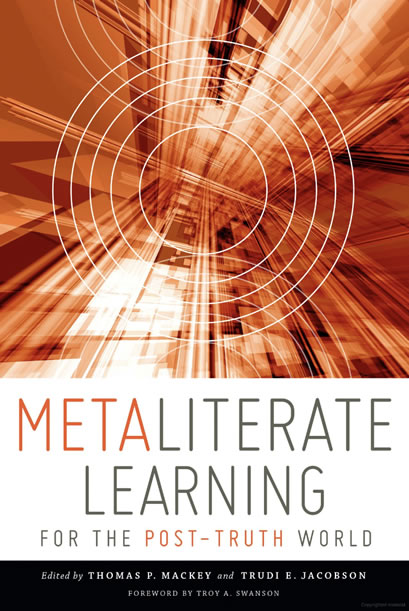
12:45 p.m. Q & As
- Q&A – Teaching Metaliteracy as a Vital Literacy for Today’s Digital World
1:15 p.m. Lightning Round followed by Q & A: Using Makerspace in the College Setting
Tamara Tallman, Instructor, The College of New Jersey
This session will provide ideas for the use of Makerspace in the college setting, particularly the teacher education spaces. Makerspace is an application that is not only for the Steam experience! An overview of Makerspace will be provided. Then, a detailed description of uses for the teacher education and college space will be discussed with lesson plan take-aways.
Learning Objectives
- Understand what Makerspace is
- Understand how to use it in any college space
- Evaluate methods for use in their college settings
- Plan a lesson to take home and begin the Makerspace set-up
1:15 p.m. Lightning Round followed by Q & A: Integrating Tech and Writing: The Power of Blogging
Stephanie, Stephan, Teacher, Spring Lake Heights School
Description
Student created blogs are a fabulous way to create high-interest writing that infuses student choice. Students can self-select topics and do their own research to include in their blog posts. Students learn about credible sources and how to properly cite research. Students are encouraged to use different forms of media (including video and infographics) and different types of content (including interviews and checklists). Students are taught how to use their writing to target their audience appropriately.
High quality comments from student blog-to-student blog cultivate a technological community that transcends the computer and enters the classroom. Students are taught how to appropriately leave blog comments, including how to disagree with tact. A focus on internet safety is a must for all participants. Students learn about the potential dangers of including too much personal information on the internet, as well as how to safely interact with strangers through commenting.
Lessons can extend to include the use of SEO (search engine optimization) and, for older students, how to use targeted ads to generate income.
Learning Objectives
- Participants will be able to teach their students how to start and maintain a blog.
- Participants will be able to teach about blog safety, internet research, and creating a culture of communication.
2:00 p.m. Lightning Round followed by Q & A: Using Technology in a Preservice Residency Program
Michelle Rosen, Ed.D., Associate Professor, New Jersey City University
Nicole Leibowitz, MA student (Urban Education: Teaching & Learning in Urban Schools), New Jersey City University
Description
We live in the stories we tell about ourselves and others. Podcasts enable us to create and share stories in a way that is both fundamental—humans have always used oral storytelling to pass down stories and lessons of individual and societal value—and very contemporary, using technology to help record and disseminate those stories.
Based in an urban, diverse university, the Teacher Intern Program provides our pre-service education students the opportunity to work as interns in real-life classrooms alongside experienced teachers. As a residency-based program, this paid internship provides students, as pre-service teachers, an opportunity that is separate from their academic coursework, allowing them to experience authentic teaching before their requirements as part of their teacher preparation program. Part of the Teacher Intern Program is a professional development series for interns at the university. Currently, the interns are creating podcasts that address classroom community and climate. Interns use this technological tool to highlight effective strategies for cultivating positive classroom environments. Attendees will benefit from this session by learning about the process that interns used when creating their podcasts, starting with developing their interview questions and moving through gathering data, revision, and reflection. Additionally, presenters will cover the technical aspect of podcast editing and production.
The podcasts are used as a tool for K-16 students and educators to engage with technology, both inside and outside of the classroom. Podcasts are a successful tool that offer flexibility and easy access, in an effort to create self-efficacy and autonomy for all learners. Podcasting is a student centered instructional approach to cultivate engaged learners at all levels.
Learning Objectives
- Understand how to use podcasts as an instructional tool for both students and educators that will facilitate authentic learning experiences
- Learn about a podcast project created by preservice teachers working as interns in area K-12 schools
- Engage in discussion related to podcast production and reflection
1:30 p.m. Breakout: Information Skills Matter: Library Tutorials for Lifelong Learning
Maria Breger, Instructional Design Specialist, Rutgers University Libraries
Description
The American Library Association defines information literacy as a set of abilities requiring individuals to “recognize when information is needed and have the ability to locate, evaluate, and use effectively the needed information.” To be information literate, one needs skills not only in research but also critical thinking and communication.
Many of today’s higher education students arrive on campus with the expectation of receiving pre-packaged information in the form of textbooks and lectures, but this type of environment does not encourage active thinking or problem-solving. For these students, problem-solving exists in structured testing environments, often with “single correct answers.” This type of problem-solving does not reflect real-world environments where information may come from multiple sources, and the student must learn to piece together this information in a meaningful way.
My presentation discusses how the Rutgers University Libraries adopted and implemented the NimblyWise / Credo Reference tutorials to cultivate the skills of information literacy, critical thinking, and communication by integrating this material into three learning management systems.
I will show an example of how two library tutorials directly support students’ development of relevant information literacy and critical thinking skills in a course.
Learning Objectives
- Participants will recognize the importance of information literacy as an integral part of the higher-ed curriculum
- Participants will be able to correlate information literacy standards to subject course objectives
- Participants will learn how Library tutorials are embedded in Blackboard, Canvas, and Sakai
1:30 p.m. Breakout: Telepresence Robot: BE in TWO Places at Once!
Linda John, Director Academic Computing, College of Staten Island
Benji Kuriakose, Manager HelpDesk, College of Staten Island
Description
What is a Telepresence Robot and how can it be helpful to faculty, staff, and students at an institution of higher learning? The College of Staten Island acquired the Danny Double telepresence robot and found it to be of great use in many instances. It aided students who could not physically attend class due to illness. It facilitated staff to attend meetings across campus, when they could not be physically there. It helped professors to teach in remote sites without actually being present, as well as in multiple locations at the same time. It allowed guests and vendors to make presentations or join gatherings without having to do extensive travelling. This presentation will talk more about these and other experiences, as well as speak on the various features of the robot. You will also be able to meet Double in person and experience this technology for yourself.
Learning Objectives
- Providing flexibility for engagement
- Overcoming obstacles to facilitate learning from a remote location
- Opportunities to leverage robots in administration
1:30 p.m. Breakout: Augmented Reality and Gamification to Deepen Learner Engagement
Terri Evans, Instructional Technology Coach, New Jersey City University, Doctoral Candidate
Description
This interactive presentation will provide participants with an introduction to a variety of digital strategies and classroom applications for Augmented Reality and gamification. Real-world examples and research-based strategies will be shared.
The presentation will include demonstrations of HP Reveal, Metaverse and Trace apps for Augmented Reality and GooseChase, Kahoot! and Padet for gamification. Attendees will have the opportunity to experience these tools and techniques and apply them to lessons that deepen content knowledge while strengthening 21st-century skills.
Augmented Reality and gamification can be used to motivate and engage students in the classroom. Expanding physical limitations, as well as presenting cognitive challenges keep students focused. Active learning and heightened attention lead to positive student outcomes as students use multiple modalities to process content.
Learning Objectives
- Participants examine classroom uses of AR/gamification experiences to engage students
- Participants will develop an AR/gamification experience: quest, interactive puzzle, quiz
- Participants apply AR/gamification strategies to current lessons to increase student engagement in the classroom
1:30 p.m. Breakout: Beyond Integration: Engagement, Authenticity, and Equity Through Ed Tech
Marc Natanagara, Ed.D., Assistant Superintendent, Toms River Regional School District
Description
Educational technology should be no more “integrated” into the curriculum than a pen should be integrated into writing. For this generation of students, technology is how things get done. But tech’s appealing interface and speedier access are just the baseline. What can it allow us to do that we should be doing in classrooms but are not? We can design tech applications that align with student, curricular, and global needs to increase engagement, break down the silos in which most subject areas reside, and even address inequities in our school systems. This session will be a hands-on exploration of these issues with tested models that apply both high tech (coding, electronics, robotics) and low tech (maker) approaches that inspire teachers to merge disciplines and help students gain transferable skills that will make them more college, career, and future ready.
Learning Objectives
- Discover ways to use technology to make learning more authentic and cross-curricular
- Understand how a problem-based mindset using tech tools increases student engagement
- Be able to better assess the effectiveness of current educational technology applications
2:15 p.m. Q & As
- Q&A – Beyond Integration: Engagement, Authenticity, and Equity Through Ed Tech
- Q&A – Telepresence Robot: BE in TWO Places at Once!
- Q&A – Augmented Reality and Gamification to Deepen Learner Engagement
- Q&A – Information Skills Matter: Library Tutorials for Life Long Learning
